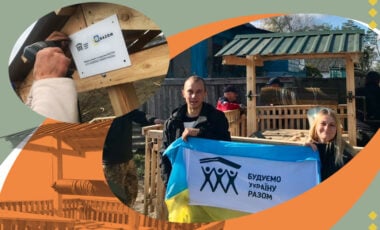Germany pushes for faster integration of Ukrainians in job market

Illustrative picture
The German government intends to speed up the labor market integration of Ukrainian refugees, whose number has increased significantly over the past year and a half.
The press service of the Ministry of Labor and Social Affairs of the Federal Republic of Germany reported this.
What is the problem?
European countries have not fully taken advantage of the opportunity to fill the labor shortage caused by the arrival of Ukrainian refugees since last year, even though many of those fleeing the war have advanced education or much-needed skills.
The German economy desperately needs labor and skilled workers, Labor Minister Hubertus Heil said on Wednesday. "Work also leads to integration," he said.
According to the Federal Employment Agency, the employment rate of Ukrainians in Germany is currently 19%.
"But this is far from enough," said Heil.
Since the start of the Russian invasion in February 2022, more than a million people from Ukraine have sought protection in Germany.
According to government data, there were about 196,600 employed Ukrainian citizens in Germany in July, of which 154,600 worked with social security contributions, and 42,000 were employed in low-paid or part-time jobs.
As of September, there were 205,970 unemployed Ukrainians in Germany.
What is the solution?
On Wednesday (October 18), the German government proposed steps to speed up the integration of tens of thousands of Ukrainian refugees into its labor market, calling on companies to relax German language requirements and offer additional training.
How does it work?
It is noted that more than 100,000 Ukrainians have recently completed integration courses and the same number will do so in the coming months.
"Those who have completed integration courses should gain work experience and further qualifications in a meaningful way as soon as possible. Every sustainable and potential-adequate integration in the labor market contributes to ensuring the demand for qualified labor in Germany," the message reads.
Accordingly, the ministry implemented several measures to accelerate the process of integration of Ukrainians.
Employment centers and agencies help graduates of integration courses, and employers find each other. To this end, industry "job search events" with the business community and educational partners, such as job fairs, are being expanded.
The authorities are also calling on companies to increasingly employ refugees who do not speak German at a sufficient level (below B2 level) and to provide them with the opportunity to undergo on-the-job training. The government also wants to involve large companies, the temporary employment sector, and industry associations to make relevant voluntary commitments.
"The German labor market is primarily looking for qualified workers with a good knowledge of the German language. Therefore, the integration of refugees is a real problem. In many cases, people need to be trained technically and linguistically to have stable employment prospects and work in the long term," explains the chairman of the federal employment agency, Andrea Nales.
Speaking at the same event, Terzenbach said he wanted to establish which municipalities have the most kindergartens to target mothers to work.
The new steps aim to assist, in particular, tens of thousands of Ukrainian refugees who have completed or are about to complete integration courses offered by the German government.
After completing such courses, refugees are expected to look for work. Otherwise, they risk losing public assistance. Employment centers are designed to help find the right workers with the appropriate qualifications.
For reference:
As reported, people currently abroad can remotely refuse IDP payments and other types of state assistance.
It should be noted that the Prime Minister of Ukraine, Denys Shmyhal, announced that the Cabinet of Ministers [Ukraine's government – ed.] and the Verkhovna Rada [Ukraine's parliament – ed.] plan to create a coordination headquarters to solve the problems of internally displaced persons


















































